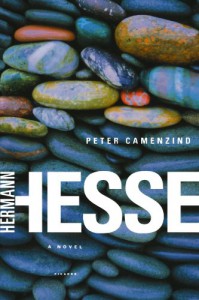 Appropriately enough I read this book during a short holiday in the mountains. In lack of the Swiss ones, I opted for the Italian Alps.
Appropriately enough I read this book during a short holiday in the mountains. In lack of the Swiss ones, I opted for the Italian Alps. Without having anything else to read in my backpack, I've had the opportunity of dedicating a second read to the book. An extremely rare habit of me.
As a bad conoisseur of Herman Hesse literary production (no Siddharta, no Steppenwolf) my impression on Peter Camenzind has very much to do with pouring a half litre water in a one litre bottle: on the one hand, we have a half full bottle, but on the other there is a half empty one.
Hesse is masterful in picturing the life of a rural mountain village where most of the population share the same surname and even putting a sail on a boat is considered something brave. A village where random witty people live below the same wooden ceiling of idiotic ones, tied to the same melancholic feeling of isolation.
Peter Camenzind is at the same time attracted and rejected by his roots. Climbing the mountains around the village at first he just seeks for new perspectives on the same landscape, then he wonders what could be hidden behind the peaks.
And when he finally manages to escape from the unclosed existence of his village, Peter Camenzind finds no consolation in the cities he visits and in that "urban civilization" where he moves as a mountain farmer always eager to row a boat or climbing a rocky wall.
The romanticism of Peter Camenzind, fil-rouge of the novel, is authentic and pure but often sounds comic. In fact he never grows up year after year, still remembering the very few moments in which he loved, pretended to love, unattainable angel-like women, more similar to drawings or paintings than to real meat-made personality-given women. And it's not a coincidence, after all, that he compares the first one to a portrait, while the second one is herself a painter and he meets the third one contemplating a painting.
Moreover, Peter Camenzind hides us a whole period of his life (the Parisian one) as Hesse wasn't able to picture him as a bohemian, while the interesting relationship of the protagonist with wine is not developed as it may deserve. This not to mention the idyllic, out-of-time, Grand Tour-like description of an unrealistic Italy where perpetual lemons refocillate the romantic pilgrim on the footsteps of Goethe and Rousseau and "beautiful sun-tanned" children welcome him begging for money with gracious and grateful smiles.
Yet, the passionate way in which Hesse writes about the magnificence of mountains and some great moments of literature are enough to forgive him making this novel an interesting key to discover most of his following books.



